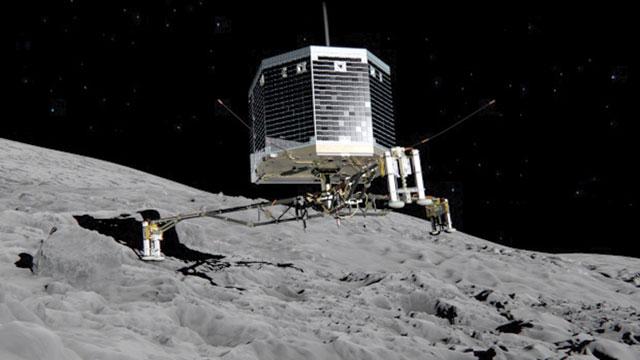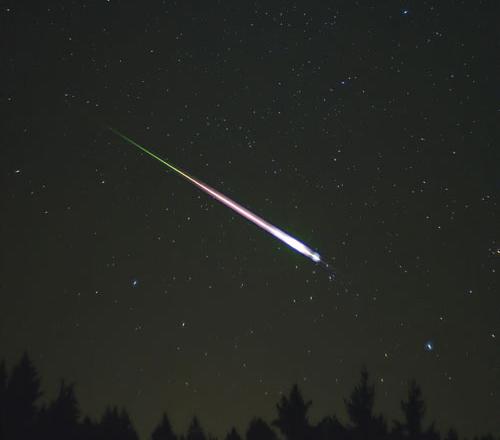You are here
Europe makes space history as Philae probe lands on comet
By Reuters - Nov 12,2014 - Last updated at Nov 12,2014

BERLIN/FRANKFURT — The European Space Agency (ESA) landed a probe on a comet on Wednesday, a first in space exploration and the climax of a decade-long mission to get samples from what are the remnants of the birth of Earth's solar system.
The box-shaped 100kg lander, named Philae, touched down on schedule at about 1600 GMT after a seven-hour descent from spacecraft Rosetta around half a billion kilometres from Earth.
Scientists hope that samples from the surface of 67P/Churyumov-Gerasimenko will help show how planets and life are created as the rock and ice that make up the comet preserve organic molecules like a time-capsule.
Comets come from the formation of Earth's 4.6-billion-year-old solar system. Scientists believe they may have brought much of the water in Earth's oceans.
"We are ready to make science fiction a science fact," ESA director of human spaceflight and operations, Thomas Reiter, said at the European Space Operations Centre in Germany before the landing.
Rosetta reached the comet, a roughly 3-by-5km rock discovered in 1969, in August after a journey of 6.4 billion kilometre that took 10 years, five months and four days — a mission that cost close to 1.4 billion euros ($1.8 billion).
Rosetta is the first spacecraft to orbit a comet rather than just flying past to take pictures.
Wednesday's launch went ahead despite a problem with the thruster that meant the probe had to rely mainly on its harpoons to stop it bouncing back from the comet's surface.
The three-legged lander had to be released at exactly the right time and speed because it cannot be controlled on its descent. On its way down, Philae gathered data and images, which were relayed back to Earth.
Engineers designed the lander not knowing what type of terrain they would find on the comet's surface. Rosetta has been taking pictures of the comet and collecting samples from its atmosphere as it approaches the sun, showing it is not as smooth as initially hoped, making landing more tricky.
Related Articles
A burst of sunshine in the spring could be just the wakeup call for Europe’s comet lander.
FRANKFURT — A robotic space lander has surprised scientists by waking up and sending a signal to Earth, seven months after straying into the
Suspicions that shooting stars come from comet dust, transformed into fiery streaks as they hit Earth’s atmosphere, have been bolstered by Europe’s Rosetta space mission, scientists reported Monday.



















